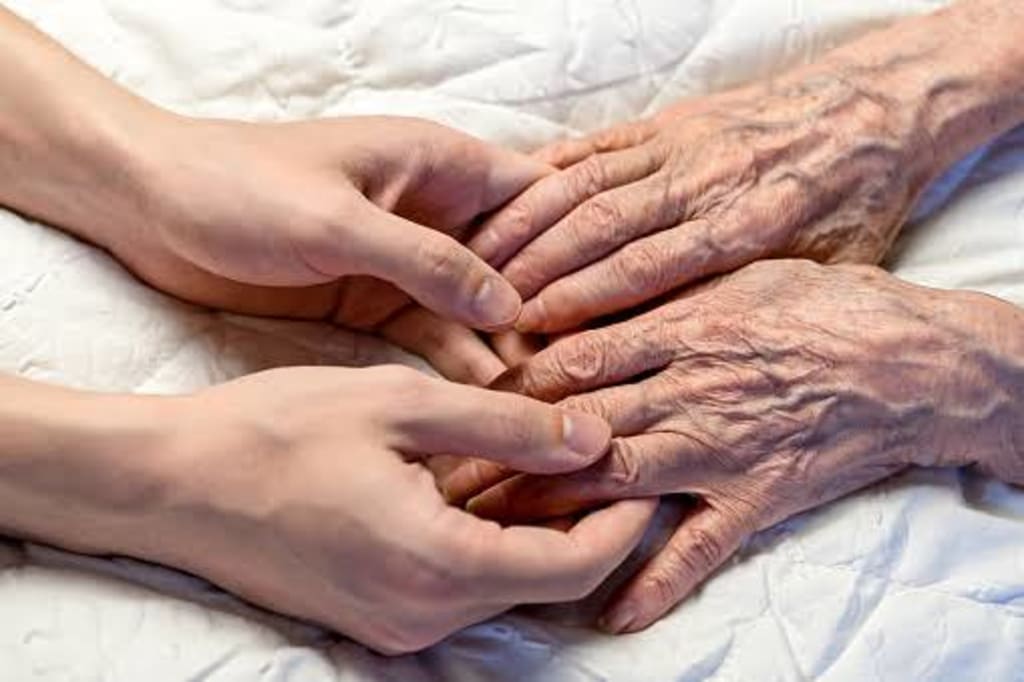Analysis on getting old
Getting old encompasses a wide range of experiences and implications. Here's a more in-depth analysis of what getting old can mean:

Getting old typically refers to the process of aging and advancing in years. It involves physical, psychological, and social changes that occur over time. Here are some common aspects associated with getting old:
Physical Changes: Aging often brings physical changes such as graying hair, wrinkles, decreased energy levels, reduced strength and flexibility, and an increased susceptibility to illnesses and diseases. The body's organs and systems may also experience functional decline.
Life Experience: With age comes a wealth of life experience. Older individuals may have accumulated knowledge, wisdom, and a broader perspective on life, having witnessed and lived through various events and situations.
Social Relationships: As people age, their social relationships may evolve. They may have long-standing friendships, develop new connections, or experience a change in family dynamics. Older individuals often play important roles as mentors, grandparents, or community members.
Reflection and Priorities: Getting old can lead individuals to reflect on their lives and reevaluate their priorities. Some may focus on spending time with loved ones, pursuing personal interests, or leaving a legacy.
Physical Decline: One significant aspect of getting old is the physical changes and decline that occur over time. The body undergoes various age-related changes, such as reduced strength, flexibility, and endurance. Chronic health conditions may become more prevalent, and the risk of age-related diseases such as arthritis, heart disease, and dementia increases. Maintaining health and managing these changes often become important considerations.
Mortality and Transience: Aging forces individuals to confront their mortality and the transience of life. As people witness friends and loved ones passing away, they may reflect on their own mortality and reassess their goals and priorities. The awareness of limited time can spur individuals to make the most of their remaining years.
Accumulated Wisdom and Experience: One positive aspect of getting old is the accumulation of wisdom and experience. Older individuals often possess a wealth of knowledge gained from decades of life experiences, successes, and failures. They may become respected elders in their communities and play vital roles as mentors or advisors to younger generations.
Emotional and Psychological Changes: Aging can bring emotional and psychological shifts. Some individuals may experience a greater sense of contentment and acceptance, while others may grapple with feelings of loss, loneliness, or existential questions. Mental health concerns, such as depression and anxiety, can arise, and cognitive changes may affect memory, attention, and processing speed.
Social Dynamics and Support Systems: Getting old can lead to changes in social relationships and support systems. Retirees may face adjustments as their work-related social networks diminish, and they seek new ways to engage with others. Older adults often rely on family, friends, or community resources for support, especially in times of physical or emotional challenges.
Cultural and Societal Perspectives: Attitudes toward aging can vary across cultures and societies. Some cultures revere older individuals and value their wisdom, while others may marginalize or neglect them. Societal structures, such as healthcare systems, retirement policies, and ageism, can significantly impact the experiences of older adults.
Continued Growth and Engagement: Despite the challenges, many individuals find ways to continue growing, learning, and engaging with life as they age. This may involve pursuing hobbies, engaging in social activities, volunteering, or embracing new technologies. Older adults can contribute to society in meaningful ways, challenging stereotypes and demonstrating the potential for lifelong personal development.
It's important to recognize that everyone's experience of getting old is unique and influenced by various factors, including genetics, lifestyle choices, socioeconomic status While some may embrace the process and find joy in the wisdom and experiences gained, others may struggle with the physical and emotional challenges that come with aging.





Comments
There are no comments for this story
Be the first to respond and start the conversation.